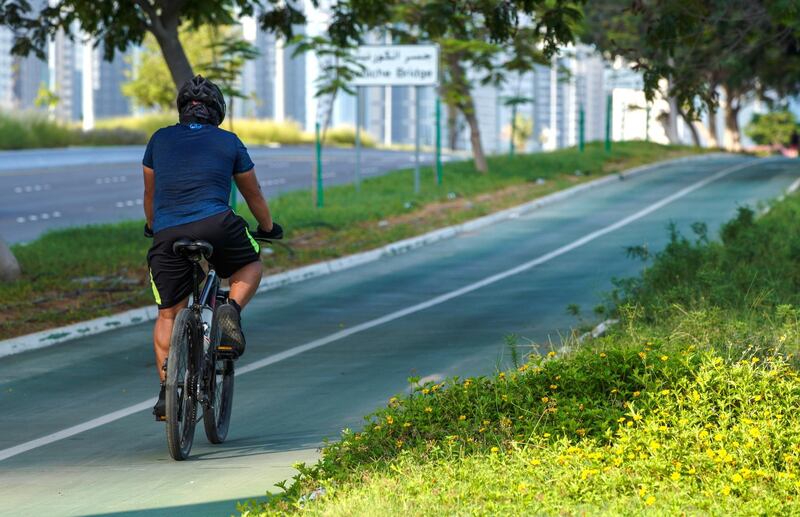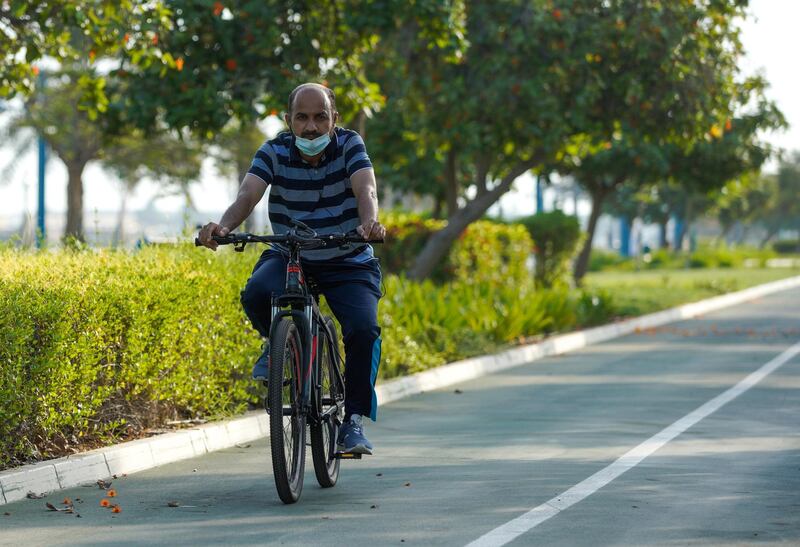A centre that aims to come up with ways to “nudge” people into changing their behaviour has been officially launched at New York University Abu Dhabi.
The Centre for Behavioural Institutional Design will use research to help governments and companies develop more effective policies to, for example, get people to exercise or take a vaccine, or to auction public assets, such as licences for mobile phone frequencies.
The strategy ties in with an approach popularised in a celebrated 2008 book, Nudge: Improving Decisions About Health, Wealth and Happiness, which inspired the creation of units in many governments that use behavioural economics to encourage changes in behaviour.
Examples of nudges include requiring people to opt out of making pension contributions through their employer, or, when asking a person if they are willing to become an organ donor, suggesting they consider how they would feel if a relative needed an organ and could not get one.
"Nudges are simple policies that help people improve their behaviour. They're attractive because they're typically low-cost and not coercive," Ernesto Reuben, a professor of economics at NYU Abu Dhabi and a co-principal investigator at the new centre, said at its online launch on Thursday.
Another example, he said, involved measures to encourage people to get vaccinated against Covid-19. While some people do not want to be vaccinated, Prof Reuben said there were others who wanted to, but had not got around to it.
“For this latter group, providing simple commitment devices can go a long way to getting [them] vaccinated,” he said.
For example, he said giving students a map of their university campus with the vaccination site, and asking them to decide on a time to get their jab, significantly improved take-up.
Nudges to encourage good behaviour

The C-BID is one of more than a dozen specialist centres set up at NYU Abu Dhabi, with others covering areas such as public health, cyber security, genomics and systems biology, and changes in global sea levels.
The centre aims to bring together academics from a variety of disciplines, and to co-operate with both government and private-sector organisations.
The launch event heard that more than 100 units have been set up around the world to make use of behavioural economics, while some reports have indicated as many as 200 have been created.
Governments in countries including Australia, the UK and the US have set up nudge units.
The discipline’s popularity represents a move away from the previous orthodoxy, in which people were thought to always behave in ways considered rational by standard economic theory.
Prof John Wooders, a professor of economics at NYU Abu Dhabi and a director at the centre, said studies had demonstrated "the complexity of human nature".
The centre's other director is Prof Nikos Nikiforakis, a professor of economics at NYU Abu Dhabi.
Models of behaviour that also consider the social sciences as well as economics have been developed, leading to the creation of better nudges.
“Formal theories of human behaviour have had a profound impact on public policy and the way people live,” he said.
“The aim is to better predict human behaviour across a range of contexts.”
Could you be nudged to vaccinate?

While the centre was officially launched this week, NYU Abu Dhabi has already been involved in an initiative called the Forever Fit Programme, run with the Department of Community Development in Abu Dhabi, which has helped to develop nudges to encourage older people to be more physically active.
Analysis of why the elderly tended to be inactive found that a lack of discipline and motivation were factors to be taken into account.
Given that many old people were found to have a low level of digital literacy, a booklet was produced with easy-to-follow exercises designed for individuals with different levels of physical ability.
The department hoped that having simple exercises would help overcome issues around discipline and motivation.
Speaking at the online launch in a pre-recorded presentation, Prof Cass Sunstein, one of the co-authors of the book Nudge, said that other nudges could focus on encouraging people to take medication correctly, as not doing so was seen as a major global problem.
“For Covid-19, one problem might be [making people engage with] social distancing. There are nudges that could be helpful. Another problem might be vaccine resistance,” he said.
“People might not be driving as carefully as they should. There are nudges that could involve the design of the car, or that could involve the design of the road.”
Prof Sunstein, who worked as a senior official in the White House during Barack Obama’s presidency, said particularly good outcomes could be developed when academics, who tended to be theory-oriented, worked with government officials, who had a more practical focus.
He also said that cultural factors were essential to consider when developing nudges.
“We have to learn a lot about what works and what doesn’t work,” he said. “Something that works in Spain might not work in Germany.”


















